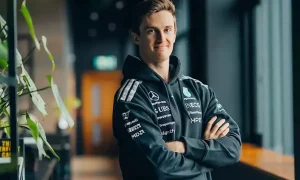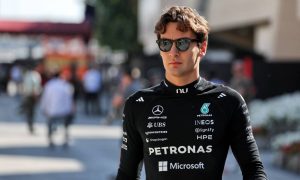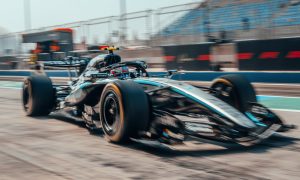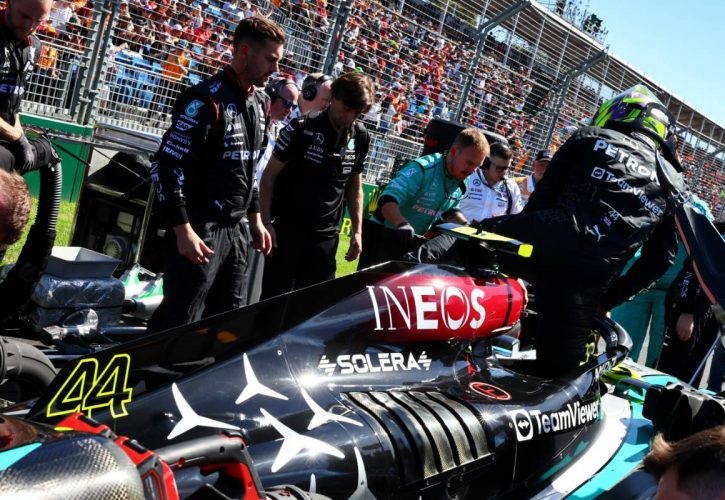
Hopes that Mercedes could get back to the top in Formula 1 this season have been comprehensively dashed by a troubled start to the 2024 campaign which has left them in a distant fourth place in the constructors championship.
The team's former technical chief Paddy Lowe says they the squad faces a difficult time ahead as it tries to build its former dominance which saw it win a record eight successive team titles from 2014 to 2021.
But new rules that brought back ground effect aerodynamics left them struggling with 'porpoising', and an ill-fated venture into 'zero sidepod' designs proved a further setback to their hopes of bouncing back.
Lewis Hamilton seemingly decided that time was running out and opted to switch to Ferrari at the end of the season, in the hope of clinching that elusive record eight driver's title.
It's left the team looking bereft and lacking direction, which is going to be a problem for team principal Toto Wolff to overcome.
"I have a lot of sympathy [for the team]," Lowe told Motorsport.com in an interview this week. He worked at Mercedes from 2013 to 2017, and was also previously technical director at McLaren and Williams.
Lowe felt that the team's problems stemmed from a misinterpretation of the latest aerodynamic rules and demonstrated that no matter how good a team was, a single miscue could bring it all down overnight.
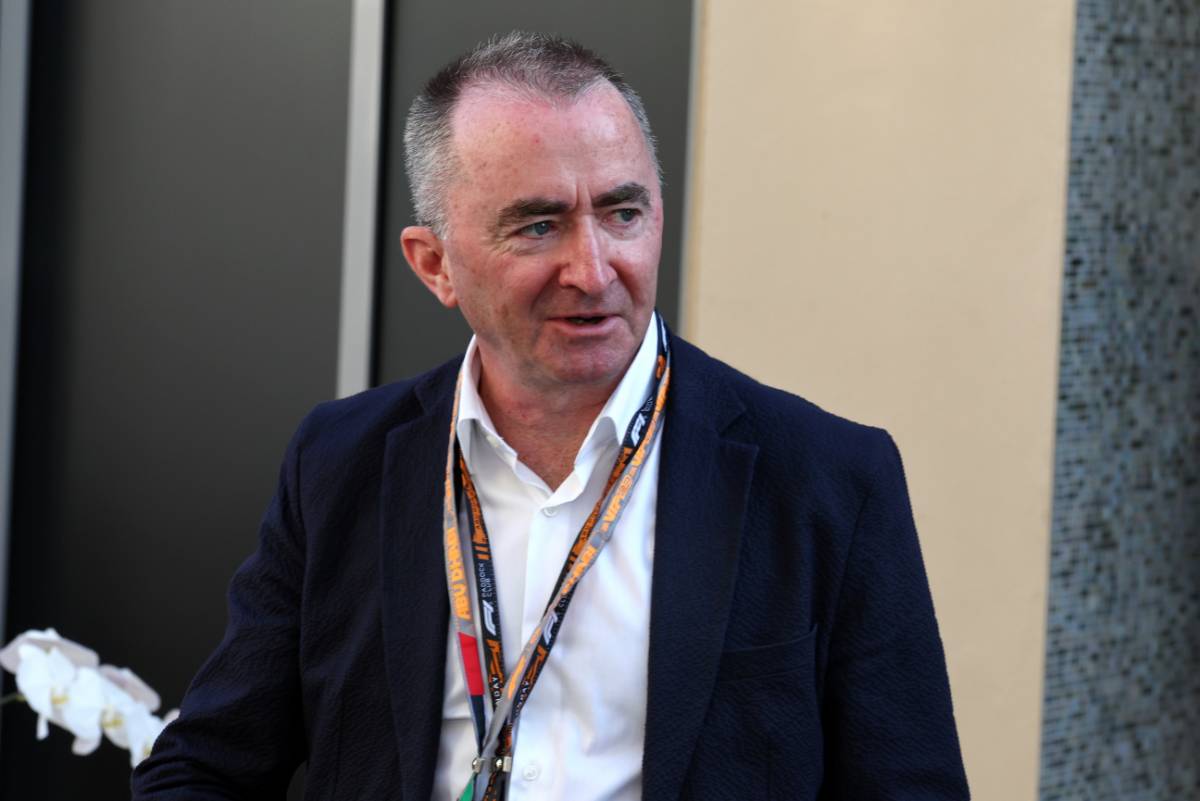
"If you talk to teams that are doing well, if they aren't too arrogant they will say: 'You should count on having good fortune in this sport when you have a good car, and don't assume it is always from your own brilliance'.
"That is a message that most of us have learned over the years," he continued. "There is always risk you go down an avenue that doesn't work in real life and then you have to recover, and you can see that has been the case with Mercedes.
"Mercedes have made some wrong turns aerodynamically. The tools that we use are incredibly sophisticated - wind tunnels and CFD and so on - but nevertheless highly flawed, and all teams will admit this.
"That is very difficult to recover simply over a matter of time," he pointed out. "Your team has huge numbers of people and all of your machinery for testing and evaluating ideas should be churning out lap time on a daily basis.
"If your competitors are doing that and you have, say, lost three, four, six months for whatever reason, even if you get back on track it is very difficult to produce lap time at a higher rate than they are, so you remain with this offset for a long time as you try and claw it back.
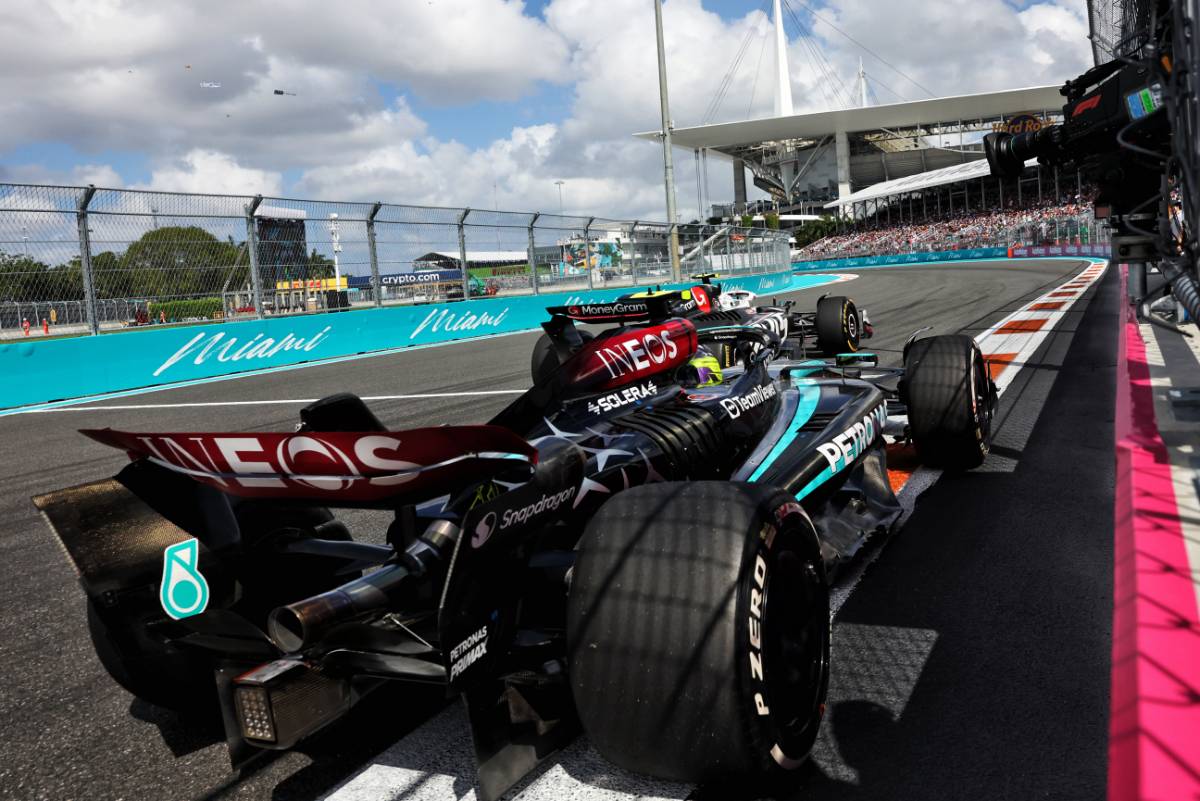
"Today's formula is very much about optimisation at a micro level on top of some basic structures that you chose or copy or evolve to," he noted. "It's very difficult to make step changes within that space.
"When I look at Mercedes, this is the situation they are in," added Lowe, who is now the founder and current CEO of carbon-neutral synthetic fuel business Zero Petroleum.
"You may or may not get there. It may get worse. This is the nature of the sport and why it is so fascinating to watch as champions come and go," he added. "Empires rise and fall.
"I always thought F1 was a bit like that, a bit like the Romans and the Greeks. There are lots of components to that and complacency can be one of them, and we saw that with the Romans."
However Lowe pointed out that there is a potential light at the end of tunnel. "The 2026 regulations will be a disturbance that Mercedes are looking forward to see if they can disturb the status quo."
Keep up to date with all the F1 news via Facebook and Twitter




